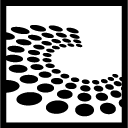29C3 - Version 1.9
| Speakers | |
|---|---|
|
|
Molly Sauter |
| Schedule | |
|---|---|
| Day | Day 1 - 2012-12-27 |
| Room | Saal 4 |
| Start time | 21:45 |
| Duration | 01:00 |
| Info | |
| ID | 5206 |
| Event type | Lecture |
| Language used for presentation | English |
| Feedback | |
|---|---|
|
Did you attend this event? Give Feedback |
The Ethics of Activist DDOS Actions
A Historical Analysis

In the world of digital activism, distributed denial of service attacks present relatively low barriers to popular participation, have a high potential for attracting large numbers of first-time and repeat participants, and can attract large amounts of media attention. But though such actions popular, are they ethical? In this talk I will be presenting an ethical framework for the analysis of activist DDOS actions. The framework is grounded in a historical analysis of various activist DDOS actions, such as the IGC attacks in Spain in the late 90s, Electronic Disturbance Theater actions in the early 2000s, and the Anonymous-led Operation Payback attacks in 2010. Each historical case study presents a unique confluence of technological, political, legal and operational factors allowing for a full spectrum of ethical analysis.
Though DDOS actions are only one aspect of digital activism, the tactic crystalizes many issues that are central to the development of the internet as a field of political action. Property rights, free speech, public versus private spaces online, participant responsibility, and the legal consequences of protest are all issues central to the validity of both DDOS actions and digital activism overall. How do changes in technology, such as the use of botnets (volunteer or otherwise), traffic amplifiers, or exploits, affect the ethical validity of a DDOS action? What about so-called "wildcat" DDOS actions, which are instigated by a single individual through the use of a botnet or exploit (making it a DOS action)? What does the overwhelmingly privatized nature of the internet mean for the ethical validity of disruptive tactics like DDOS? How do the legal penalties, which are based in a criminal understanding of such attacks, affect the ethical responsibilities of the organizers of such actions? What are the ethical responsibilities activists bear towards the network itself? Are disruptive tactics like DDOS actions effective, and in what ways are they effective? In examining these questions, I will be looking at how DDOS actions fit into the landscape of digital activism and what they mean for the development of civil disobedience tactics online.
I am a second-year Masters student at MIT, studying digital activism at the Center for Civic Media at the Media Lab. I'm particularly interested in digital civil disobedience and disruptive protest, and my DDOS research encompasses a significant part of my master's thesis. I presented a preliminary version of this work at the HOPE conference in New York this past summer (notes and a recording of that talk can be viewed here: http://oddletters.com/2012/07/15/hope9-talk-activist-ddos-when-similes-and-metaphors-fail/). While that talk focused on the rhetorical framings of DDOS actions, this version concentrates on the ethics of such actions. Since HOPE, I have expanded the historical analysis significantly, including three additional case studies to more thoroughly cover the spectrum of potential actions. I've also encorporated a stronger theoretical underpinning for the ethical framework, which solidifies and strengthens the analysis overall. The general analysis has also been expanded to address larger issues implicated by DDOS actions, including the validity of disruptive tactics and public spaces online.
